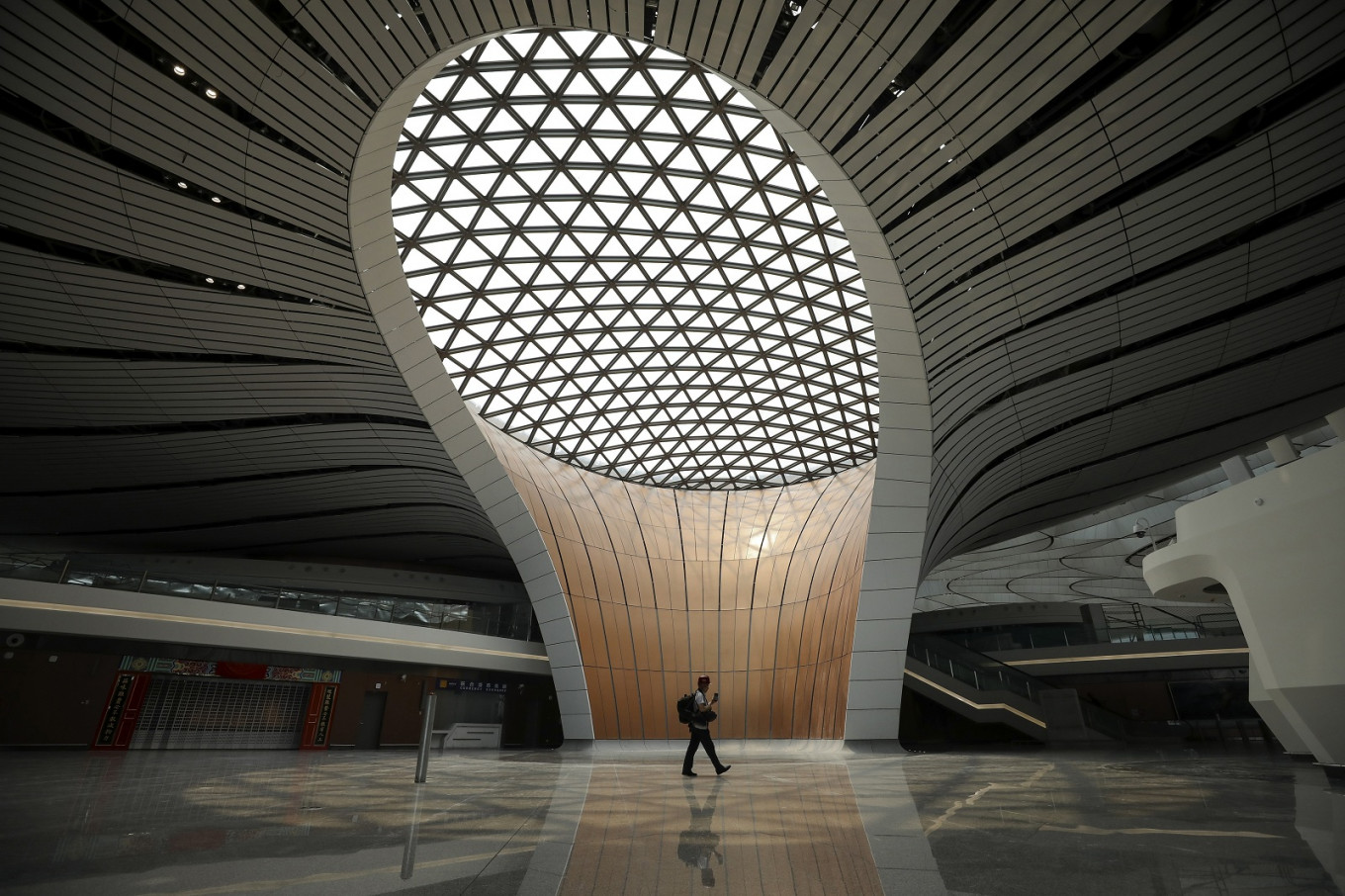Popular Reads
Top Results
Can't find what you're looking for?
View all search resultsPopular Reads
Top Results
Can't find what you're looking for?
View all search resultsChina's tourists cut back foreign travel over 'Golden Week', choose patriotic destinations at home
Change text size
Gift Premium Articles
to Anyone
 This photo taken on June 26, 2019 shows a man walking in the terminal building of the new Beijing Daxing International Airport in Beijing. Beijing is set to open an eye-catching multi-billion dollar airport resembling a massive shining starfish, to accommodate soaring air traffic in China and celebrate the Communist government's 70th anniversary in power. (STR/AFP/File)
This photo taken on June 26, 2019 shows a man walking in the terminal building of the new Beijing Daxing International Airport in Beijing. Beijing is set to open an eye-catching multi-billion dollar airport resembling a massive shining starfish, to accommodate soaring air traffic in China and celebrate the Communist government's 70th anniversary in power. (STR/AFP/File)
C
hinese mainland tourists cut back on trips and spending abroad during the long "Golden Week" holidays in early October, with a weaker yuan, political turmoil in Hong Kong and global tensions dampening their enthusiasm to travel too far from home.
But "patriotic" tourism to local historic sites boomed on the 70th anniversary of the People's Republic of China. The annual holiday to mark the modern nation's founding, during which hundreds of millions of people travel, began on National Day on Oct. 1 and ended on Monday this year.
According to a report from Alibaba, which owns travel app Fliggy, hotel bookings in 10 classic destinations that had witnessed key moments in the history of the ruling Communist Party rose by an average of 300 percent year-on-year over Oct. 1-3.
Domestic tourism revenue grew 8.47 percent year-on-year over the break, slipping from 9.04 percent growth last year and marking the lowest growth in at least 17 years, according to data released by the Ministry of Culture and Tourism.
President Xi Jinping oversaw a massive military parade in Beijing on Oct. 1 to celebrate the anniversary.
Amid a cooling economy, many local governments across the country had ramped up tourism campaigns and promises of cheaper holidays in the run-up to the National Day holidays this year.
Chinese tourists also cut back overseas travel and spending.
China is the single largest source of tourists in the world.
For the first six days of the holiday, the number of border crossings by Chinese mainland residents fell 15.1 percent from the previous year, according to the National Immigration Administration.
Tourists from the top seven Chinese cities for outbound travel reduced their per capita spending by amounts ranging from 16 percent to 25 percent compared to last year, according to Reuters' calculations based on data from online travel firm Ctrip.com.
Visits to Hong Kong, which has been wracked by anti-government protests since March, fell sharply.
From Oct. 1-7, the average daily number of tour groups from the mainland registered by the Travel Industry Council of Hong Kong declined by 85.4 percent compared with last year, according to Alice Chan, executive director of the Travel Industry Council of Hong Kong.
Read also: Better tourism infrastructure needed to attract more Chinese travelers: Ambassador
Mainland visitors weren't the only ones put off by growing violence in the Chinese-ruled city. Total tourist arrivals in Hong Kong plunged more than 50 percent in the period compared with last year.
Some tour agencies in the city have asked their staff to take unpaid leave, and a few have succeeded in getting their landlords to reduce rents, Chan said in an email.
Layoffs are possible, she added.
Chinese are being more cautious in their travel choices amid increasing economic uncertainty, more restrictions on travel to Taiwan, and stricter U.S. visa policies amid trade tensions, said Deng Ning, an associate professor at the Department of Tourism Management at Beijing International Studies University.






